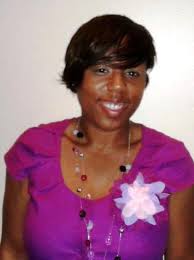Ashbrook Teacher Uses 50 Core American Documents to Transform College History Course
December 24, 2020

Kristy Taylor sees American History classes as an opportunity to teach critical thinking skills. This semester, she decided to make Ashbrook’s 50 Core American Documents collection an integral part of two courses she teaches at Palm Beach State College–Belle Glade, a community college in South Florida. Using primary documents, she said, has transformed her courses. “I’ve never seen students engage in discussion and debate like they are now,” she said. “They are reaching a higher level of thinking.”

Most of Taylor’s students are the first in their families to attend college, and many are immigrants who speak English as a second language. They come with little historical knowledge: “I gave them a short sample AP US history test to see what they knew. The average score was 23%,” Taylor said. “I hope to increase those scores by using the primary source documents.”
To get through documents written in an older language style, “we just have to go slowly,” Taylor said. “I walk around in the class holding my copy of the 50 Core American Documents, telling them I want to see them highlighting key words and passages.” Some who had planned to use the online version of the Ashbrook collection decided instead to buy a print copy. “I had to place a second order for the books.”
Students are using an online textbook that provides the factual framework of American history, but they are working through the primary documents in Ashbrook’s collection “to get a first-person view” of history’s complexity. Events do not occur sequentially, the way they are presented in textbooks; rather, “many things are happening at the same time,” Taylor pointed out. People don’t yet know which ideas will prevail, shaping the future.
Taylor described the effect on her students of reading Document 36 in the Ashbrook collection, Frederick Douglass’ “Oration in Memory of Abraham Lincoln.” Douglass spoke in 1876, on the anniversary of Lincoln’s assassination, to African Americans who had erected a statue in the president’s memory. For Douglass, the significance of Lincoln’s presidency unfolded over time. Early in his speech, Douglass says Lincoln was “preeminently the white man’s president.” He then describes the conflicting interests Lincoln had to deal with. “He was assailed for not making the war an abolition war” and later “was bitterly assailed for making the war an abolition war.” Lincoln alone was able to accomplish the emancipation of the slaves, Douglass says. By the end, Taylor said, Douglass “calls Lincoln a martyr” for African American freedom.
The document shows how one of Lincoln’s contemporaries understood his presidency in hindsight. But the speech is poignant because of what Douglass does not yet know. “In this year, Rutherford Hayes would be elected, bringing the end of Reconstruction. I don’t think Douglass realized that Jim Crow laws were coming, and full civil rights for black Americans would have to wait another century. Reading these primary documents does show how history can repeat itself,” Taylor said. To prevent injustice, people must know their history and make courageous decisions.
Taylor learned about Ashbrook’s document collection when she attended one of Ashbrook’s “Rediscovering America” seminars for social studies teachers in Jacksonville last November. The seminar focused on Jefferson. “It was taught through Socratic questioning and discussion, the way I like to teach,” Taylor said. “It was so interesting that none of us took the offered break. We even talked through lunch!”
_____________________________________________________________

